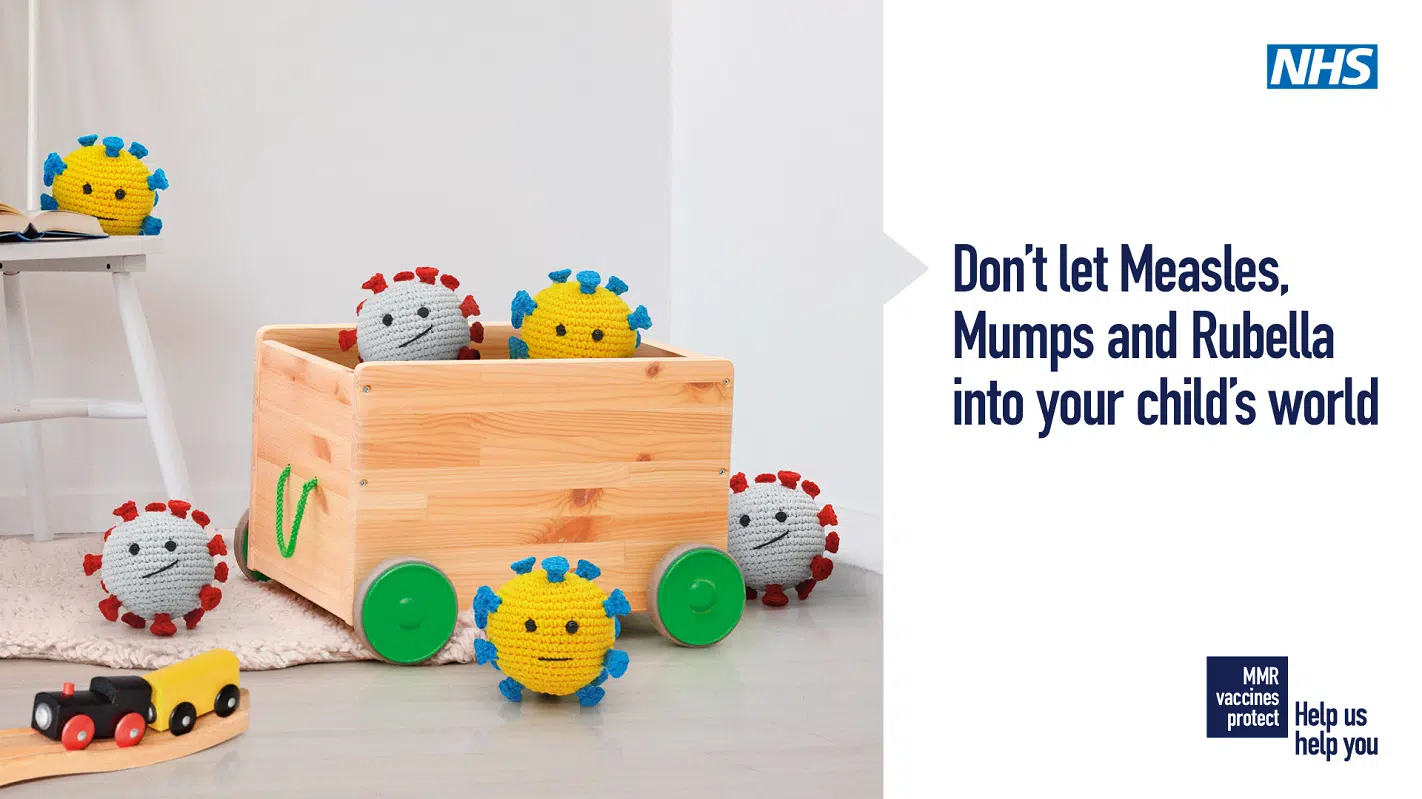New campaign warns parents and guardians of serious risk to children’s health from measles and reminds them to ensure their children are protected by taking up two doses of MMR vaccine.
The Institute of Health Visiting supports the call by the UK Health Security Agency (UKHSA) and the NHS for parents and guardians to ensure that their children are up to date with the measles, mumps and rubella (MMR) vaccine, and all other routine childhood immunisations, as the latest data shows MMR vaccination uptake has dropped to the lowest level in a decade.
In a new campaign drive, parents and guardians are being reminded that, during the pandemic, the NHS has continued to provide routine childhood immunisations and they are crucial in protecting children against preventable diseases.
Since the start of the COVID-19 pandemic, in March 2020, there has been a significant drop in the numbers getting their children vaccinated against MMR and other childhood vaccines at the right time.
Coverage for the two doses of MMR vaccine in five year olds in England is currently 85.5%, well below the 95% World Health Organisation’s target needed to achieve and sustain measles elimination. Coverage of the first dose of the MMR vaccine in 2 year olds has dropped below 90%. This means that more than 1 in 10 children under the age of 5 are not fully protected from measles and are at risk of catching it.
Alison Morton, Executive Director at the Institute of Health Visiting, said:
“It is very worrying that more than 1 in 10 five-year-olds are not fully protected against measles. Measles is highly infectious (much more than COVID) and can make children very ill indeed. During the pandemic, the measures we have all taken to protect ourselves and our communities from infection resulted in a reduction in measles. However, this does not mean it has disappeared. Measles is waiting in the wings and it only takes a small fall in vaccine uptake for us to start having outbreaks. Fortunately, it is never too late to have the MMR vaccine, two doses are needed to give best protection. The vaccine is also very safe.
“Parents can check their child’s red book to see if they have had their two doses. If they have not, or it is not clear, parents should contact their GP practice and book an appointment. Combatting measles will take a whole system approach and health visitors are ideally placed to support parents to access the vaccine for their child, and also answer their questions if they are unsure or have concerns.”
Measles is highly contagious, so even a small decline in MMR uptake can lead to a rise in cases. As international travel resumes, it is more likely that measles will be brought in from countries that have higher levels of the disease and so it is important that we recover MMR vaccination rates to help prevent a rise in cases.
Measles can lead to complications such as ear infections, pneumonia, and inflammation of the brain which require hospitalisation and on rare occasions can lead to long term disability or death. Since the introduction of the measles vaccine in 1968 it is estimated that 20 million measles cases and 4,500 deaths have been prevented in the UK.
New research commissioned by the Department of Health and Social Care and the UKHSA, conducted by Censuswide, shows that many parents are not aware of the risks that measles poses to their unvaccinated children.
Out of 2,000 parents and guardians of children aged five and under:
- Almost half (48%) are not aware that measles can lead to serious complications such as pneumonia and brain inflammation
- Only 4 in 10 (38%) are aware measles can be fatal
- More than half of parents (56%) are not aware that two doses of the MMR vaccine gives 99% protection against measles and rubella
Children are offered two doses of the MMR vaccine by their registered GP surgery – the first when they turn 1-year old and the second at around 3 years and 4 months, before they start nursery or school. The NHS has continued to prioritise routine vaccinations throughout the pandemic, however some parents who haven’t had their child vaccinated against MMR said this was because they didn’t realise the NHS was still offering appointments, or they didn’t want to burden the NHS.



